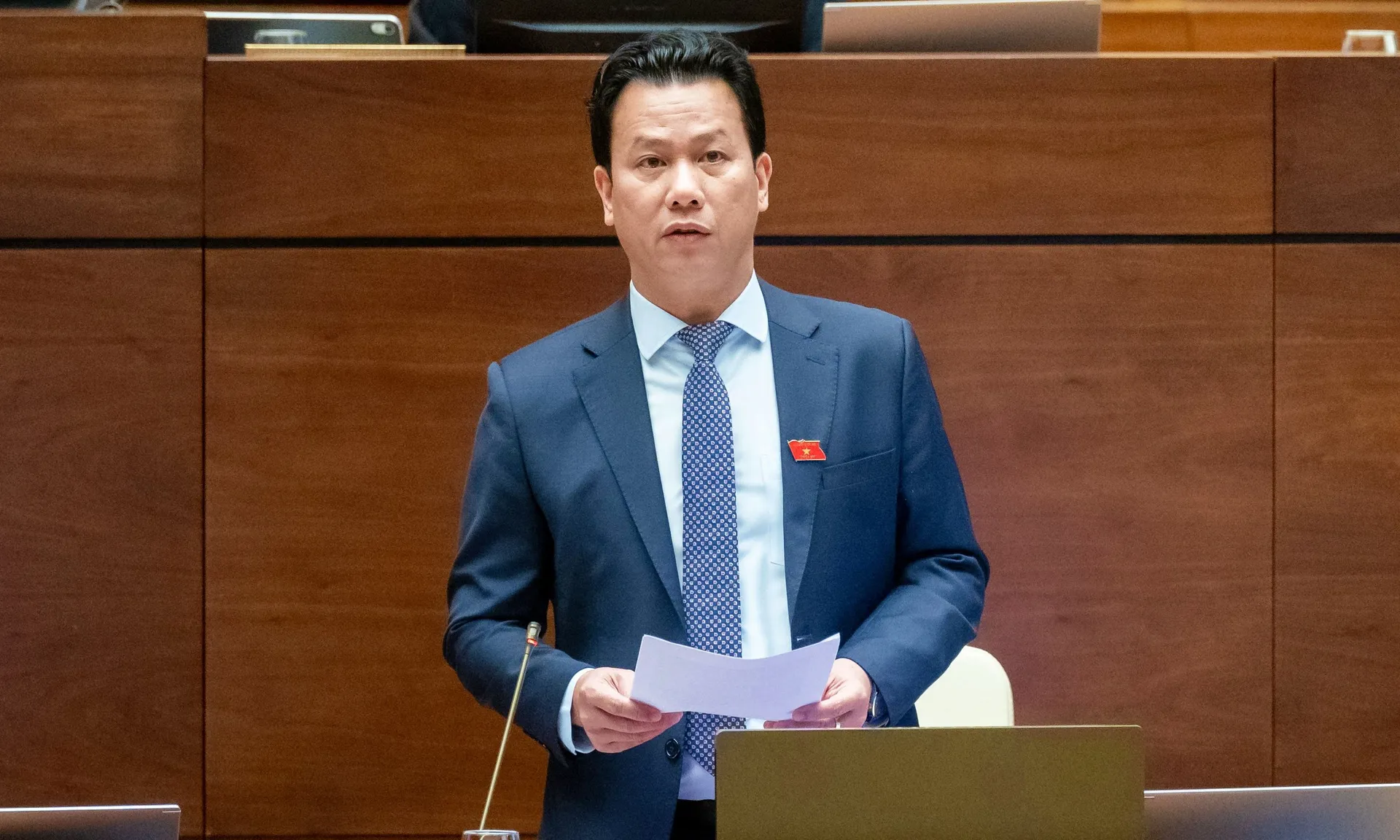Vietnam has reserves of over 30 million tons of rare earths
Vietnam prioritizes deep processing and refining of essential minerals to support its domestic industries.
Minister of Natural Resources and Environment (MONRE) Dang Quoc Khanh, during an interpellation session at the National Assembly today [June 4], revealed that Vietnam’s estimated rare earth reserves could reach nearly 30 million tons.
| Minister of Natural Resources and Environment Dang Quoc Khanh. Photo: Quochoi.vn |
“Vietnam possesses significant strategic mineral resources with substantial reserves,” Khanh said, noting that the country has an estimated 5.8 billion tons of bauxite and 600 million tons of titanium.
Regarding rare earths, the minister noted that MONRE has assessed 2.7 million tons of rare earth reserves so far. Additionally, there are approximately 18 million tons of unassessed rare earth resources, bringing the total to around 20.7 million tons.
"The Prime Minister has tasked the Ministry with conducting a comprehensive assessment of these reserves. According to our data, Vietnam's rare earth ores are close to 30 million tons," Minister Khanh remarked.
He also emphasized the need for deep processing and refining of essential minerals like rare earths within Vietnam to support domestic industries. "We are attracting semiconductor chip manufacturing, as directed by the Prime Minister. Deep processing of rare earths can serve our needs and potentially be exported," he added.
However, he acknowledged the challenges, noting that Vietnam has not yet developed comprehensive deep processing technologies and therefore needs to attract investment, joint ventures, and technology transfer.
Khanh highlighted the ongoing efforts to explore and evaluate the reserves, and he called on provinces with potential rare earth deposits, such as Lai Chau, Yen Bai, and Lao Cai, to strengthen their management of these resources. "Rare earth deposits can be found deep underground or in small, scattered surface deposits. Local authorities must prevent illegal extraction and trade of rare earths," he stressed.
Rare earths consist of 17 elements that are critical to the manufacturing of high-tech devices, batteries, and permanent magnets for electric vehicles, wind turbines, airplanes, phones, and the defense industry. According to a 2022 report by the US Geological Survey, China has the largest rare earth reserves at 44 million tons, followed by Vietnam with 22 million tons, and Brazil with 21 million tons.
In Vietnam, significant rare earth reserves have been detected in provinces such as Lao Cai, Yen Bai, and Lai Chau. Lai Chau is home to Vietnam's largest rare earth mine, Dong Pao, covering 132 hectares, along with Bac Nam Xe and Nam Nam Xe mines.
Many experts have pointed out that rare earths play a crucial role in modern industries, including electronics, renewable energy, and defense. As such, deep mining and processing of rare earths can help Vietnam develop strategic industries and boost exports.












